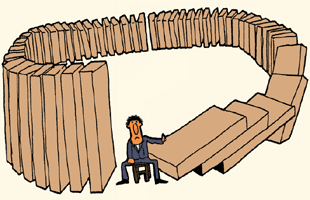Half a Life is a lucidly and cogently written book by the renowned and inimitable VS Naipaul that won him the Nobel prize for Literature in 2001.
The story is about Willie Somerset Chandran facing an identity issue starting with his name. What emerges is the imagery of a tumultuous India in the 1930s but whose effects are negligible in the maharaja’s estate where the initial part of the story is set. The plight and dilemma of a temple community that is facing no patronage from the rulers since the advent of muslims and then the British, is what is leading the priests and its support system to look for better living and paying opportunities elsewhere. But in the backdrop of the freedom struggle going on in the country and Mahatma Gandhi’s call to give up foreign goods and uplift social barriers leads Willie’s father to take a decision that he lives to regret all his life.
With such rooting Willie wishes to escape the insecurity,
the same life as his father’s in his coming future. The deep caste riven
society would make it difficult for him to find a better life than what he had
already. And thus starts his quest for a better life moving across the seven
seas to Great Britain eventually to Africa, giving deep insights into the life
during post-war England and the isolated yet communal lives of the business
class during the last days of colonialism.
Half a life is a phrase to depict the unfulfilled or
incomplete lives lived yet seeking to complete it through the course of events
and individuals one meets. In this case Willie is not the high caste brown man in
a foreign land or his own motherland that would tether him to any one place
just as the business community of his neighbours in Africa were. As he observes-
‘…that the world I had entered was only half and half world,
that many of the people who were our friends considered themselves, deep down,
people of the second rank. They were not fully Portuguese, and that is where
their own ambitions lay.’
In the end isn’t life all about compromises and adjustments?
Willie wants to quit his marriage with Ana for he doesn’t want to live her life
as he says.
‘Perhaps I haven’t been living mine either’ is her reply.







